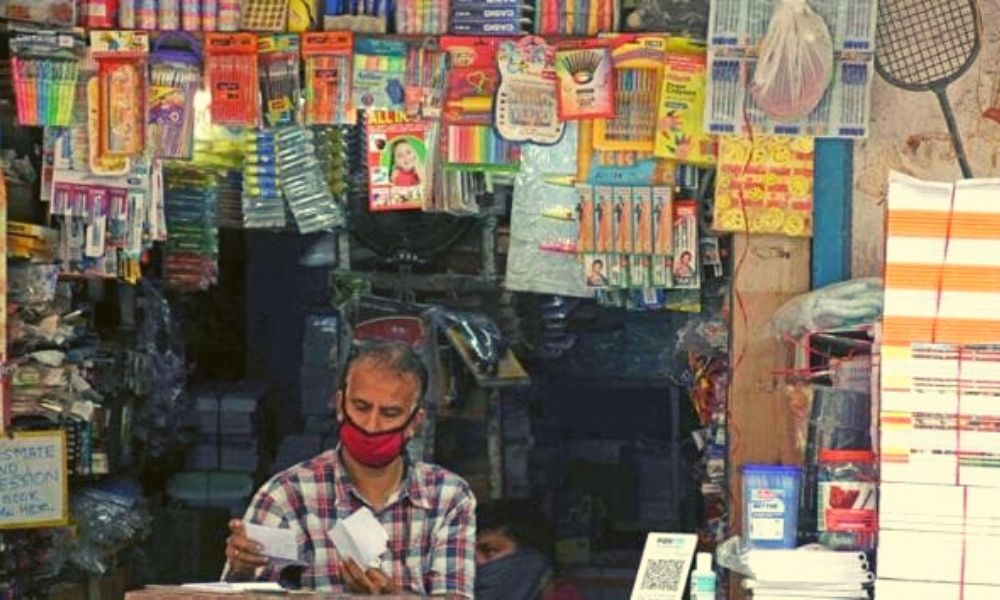
Image Credits: Hindustan Times
COVID Crisis Pushes 100 Million More Workers Into Poverty: United Nations
Writer: Rishab Shaju
A passionate, confident, and energetic student, I am a workaholic with an interest in the field of Broadcast Journalism. I always make sure to meet my deadlines and can work well under pressure. Other than journalism, I am also interested in the field of Psychology and Literature. Timeliness and honesty are the two most important factors that define me. If not journalism, I would want to be a professor or a social worker.
Others/World, 5 Jun 2021 5:01 AM GMT
Editor : Palak Agrawal |
Palak a journalism graduate believes in simplifying the complicated and writing about the extraordinary lives of ordinary people. She calls herself a " hodophile" or in layman words- a person who loves to travel.
Creatives : Palak Agrawal
Palak a journalism graduate believes in simplifying the complicated and writing about the extraordinary lives of ordinary people. She calls herself a " hodophile" or in layman words- a person who loves to travel.
The crisis has severely hit women, who have fallen out of the labour market at a greater rate than men, even when they have taken the additional burden of taking care of the out-of-school children and other members of the family.
The COVID-19 pandemic has led to a severe economic crisis, pushing 100 million more workers into poverty, said the United Nations (UN) on Wednesday, June 2.
This was because working hours dipped and access to good quality jobs has become challenging. The UN's International Labour Organisation (ILO) also warned that the pandemic had triggered a labor market crisis which would take a long time to come to an end.
The report stated that employment opportunities would not bounce back to pre-pandemic levels until 2023 at the earliest. The ILO's annual World Employment and Social Outlook report also said that the world would be short of 75 million jobs by the end of this year, compared to if the pandemic had not taken place.
"Without a deliberate effort to accelerate the creation of decent jobs, and support the most vulnerable members of society and the recovery of the hardest-hit economic sectors, the lingering effects of the pandemic could be with us for years in the form of lost human and economic potential, and higher poverty and inequality," said ILO chief Guy Ryder.
The report showed that global unemployment was expected to be 205 million people in 2022, which is far higher than the 187 million in 2019. In addition to this, many people who have actually held onto their jobs, have seen their working hours cut dramatically. In 2020, 8.8 per cent of global working hours were lost.
Nevertheless, global employment is expected to recover in the latter half of 2021, provided the overall pandemic situation does not worsen. However, that recovery would be highly uneven, said the ILO, due to inequitable access to COVID-19 vaccines. So far, 75 per cent of all the jabs have gone to just 10 countries.
The quality of newly created jobs is most likely to deteriorate. The drop in employment and working hours has led to a sharp fall in labour income and a rise in poverty. Compared to this, 108 million more workers around the world have been categorised as poor or extremely poor, which means that they and their families live on less than $3.20 per person per day.
"For many millions of people, the working hour losses combined with a lack or absence of social protection" had sparked an "absolutely dramatic" increase in working poverty," said Ryder.
He also mentioned how the crisis has also revered the progress of battling child labour and forced labour. The COVID-19 crisis has also worsened the pre-existing inequalities by hitting vulnerable workers harder.
Those working in the informal sector have faced catastrophic consequences for family incomes and livelihood. The crisis has also hit women, who have fallen out of the labour market at a greater rate than men, even when they have taken the additional burden of taking care of the out-of-school children and other members of the family.
The report also warned of the risk of "re-tradionalisation" of gender roles. Youth Employment fell by 8.7 per cent last year, which was double the amount as compared to the older workers. "The consequences of this delay and disruption to the early labour market experience of young people could last for years," the ILO said.
With additional caution, Ryder also said that without decisive action, this COVID-19 crisis could scar the global market for a long time. A catastrophic end wouldn't be shocking if the pandemic doesn't end soon.
Also Read: Rescheduling COVID Jab Session Now Possible On CoWIN App: Centre
 All section
All section













